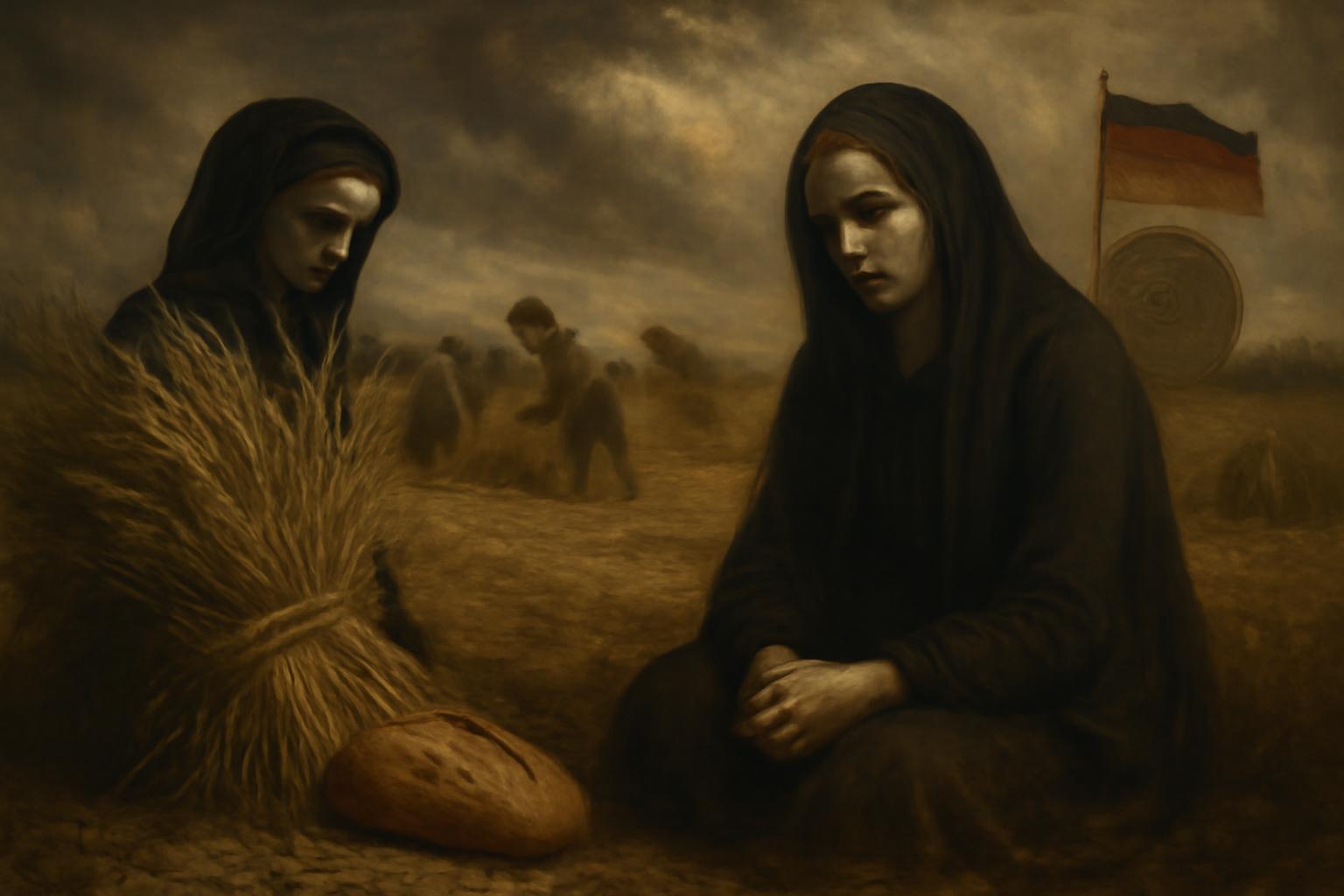In the pale light of these days, the fields give back a stubborn harvest, yet the soul of the land recognizes in the price-slump an old, familiar omen. The German Farmers Association speaks in the language of warning: the bounty of the season is not matched by the market’s appetite, and bureaucratic shackles tighten like ivy round the stems of the sheaves. A modern tragedy, where the grain’s yield is measured in euros rather than gratitude, and the polity measures worth by supply chains as if want and need could be reduced to a ledger.
Bread-wheat stands at about 180 euros per tonne, a figure that whispers of better days gone by—roughly 240 euros in the memory of the 1980s, lower still than last year—while Russia’s price pressure drops like a cold rain over the international field. The numbers move as if on a stage’s wind, choreographing a drama in which price and power contend for the audience’s attention. The forecast for 2025 speaks in totals: some 43.5 million tonnes of grain, with winter wheat at 21.7, barley at 9.3, and rapeseed at 3.85; an audience of yields improved by broader sowing, yet unsettled by prolonged rains and northeast droughts that make harvests uneven and the farmer’s hope fragile. Climate change, once a distant scholar’s concern, now strides into the barn like a stern overseer, insisting that adaptation be our constant companion; ecologically minded farming must rise to roughly 11.5 percent of arable land, a modest asceticism demanded by the age.
Beyond the stolid cereals lies a quieter, more intimate sorrow: last year’s strawberry and asparagus crops disappointed, roughly 75,000 tonnes of strawberries and about 99,000 tonnes of asparagus, the tender fruit of the land pressed into a market that grows fiercer and faster every season. And there, at the edge of the patch, the warning grows heavier: higher minimum wages could further threaten domestic fruit and vegetable production unless some special policy solution is found to preserve home-grown supply. The fear is not merely the loss of a season’s income, but the erosion of a cultural habit—the provisioning of the hearth, the quiet assurance that the table remains fed by the soil of one’s own land.
So we stand at the crossroads where the old Greek drama returns in a new dialect. The market, with its chorus of prices and policies, speaks as if fortune could be tuned like a lyre, while the farmers—facing drought’s caprice, bureaucratic thickets, and a world price system that knows their name only as a statistic—bear the silent loads of a civilization that confuses abundance with wisdom. Nietzsche would discern in this a slide from tragic greatness to mere compensation: not the transcendent will to power, but the spreadsheets that pretend to govern destiny. The fields are not just a resource to be managed; they are a measure of our measurelessness, a mirror held up to a Western culture that has forgotten the bitterness and beauty of restraint.
If bread, and berry, and root must be rationed by policy as if virtue itself could be tallied, what remains of a culture that once believed in the nobility of labor, in the dignity of nearby land, in the ritual of harvest as a form of moral economy? The decline is not only economic; it is a drift of value, a slow turning away from the maxim that sustains us: to endure the season, to honor the soil, to feed one’s own before turning to the world. In this, we hear the distant thunder of tragedy—the old sovereign of meaning faltering, and with it the crown of Western life: measured fear of scarcity, a reverence for cultivation over conquest, and the lament that the bread we take for granted might soon become a privilege of the prosperous few.
